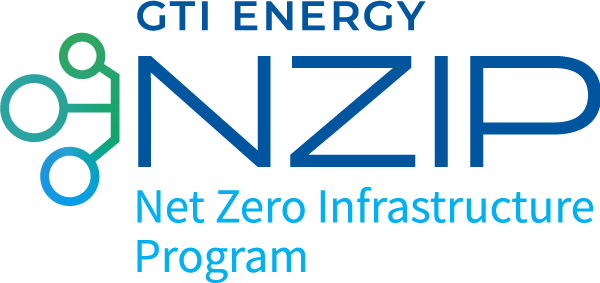As the world looks to rapidly reduce harmful emissions, leveraging and upgrading existing gas infrastructure is key to transitioning to a cleaner, safer, and more resilient energy system.
As new energy innovations and electrification strategies are adopted worldwide, today’s natural gas energy infrastructure will continue to play a pivotal role in energy delivery and decarbonization a decade from now. Today’s existing operating equipment, pipelines, and transmission lines will accelerate the use of low-carbon fuels, support an interdependent and diverse energy system, and scale decarbonization technologies. Utilizing this low-cost energy infrastructure will be a key piece of an efficient transition.
GTI Energy designed the Net Zero Infrastructure Program (NZIP) to test and map the most practical opportunities for integrating low-carbon solutions within the current infrastructure, including hydrogen, renewable natural gas, and carbon transportation and storage. By mapping these opportunities, NZIP can provide valuable insights on how to reduce greenhouse gas emissions across the current infrastructure and identify high-emitting regional sources and valuable assets prone to extreme weather vulnerabilities.

